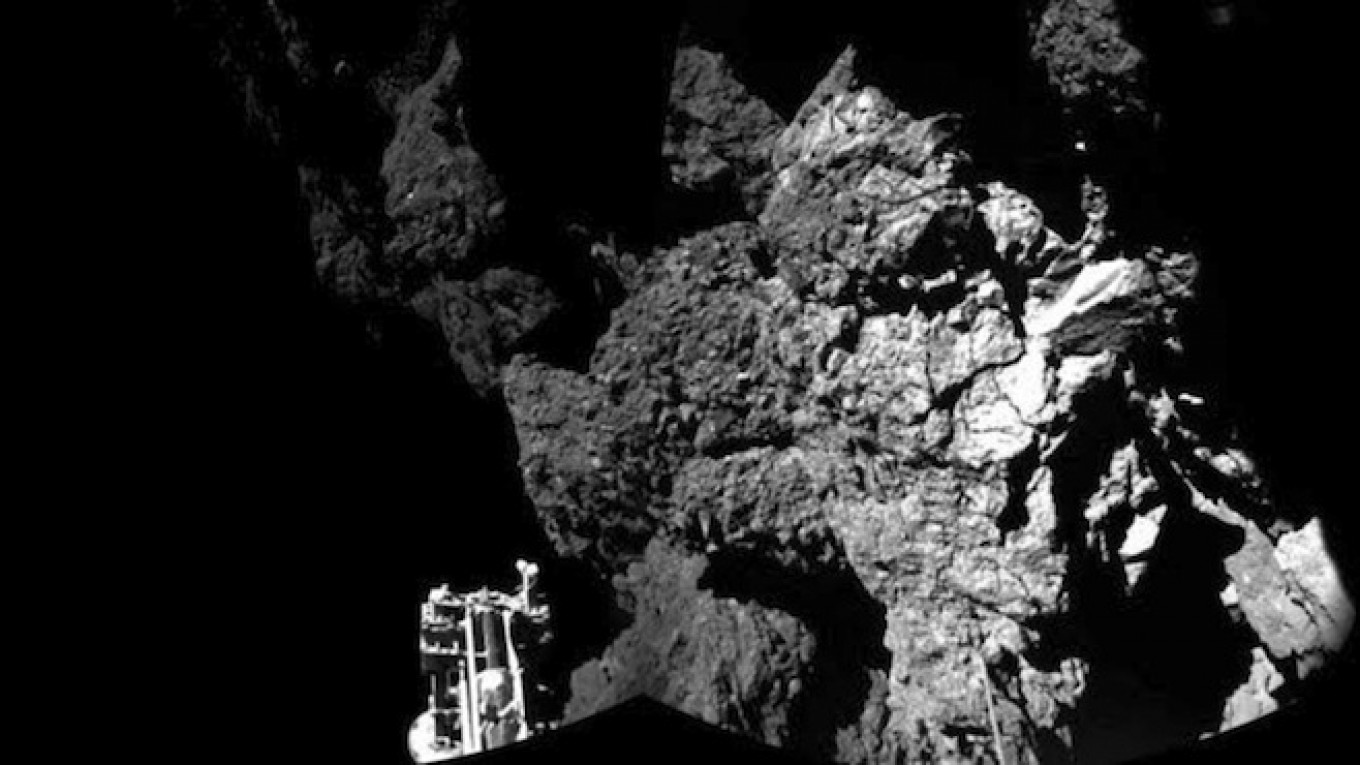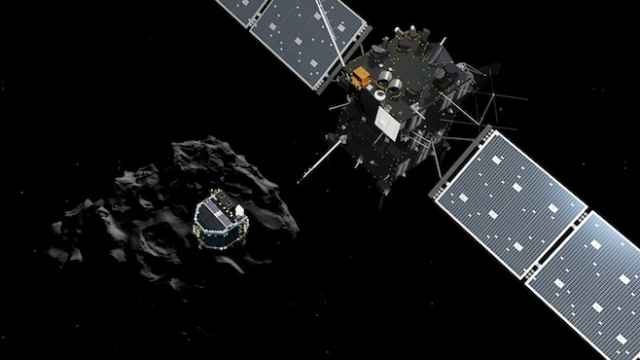Boldly bridging the gap between faith and science, a Russian Orthodox Church spokesman has voiced support for the panspermia theory of life origin, which propounds that life was transported here from elsewhere in the universe.
"God could have created the world through various means," Moscow Patriarchate representative Vsevolod Chaplin was cited as saying Thursday by the TASS news agency. "This includes the primary material contained in the bowels of a comet."
He was commenting on the findings of the first comet landing in history, pulled off last week by the European Space Agency, which landed the Philae spacecraft on the 67P/Churyumov–Gerasimenko comet.
Philae has found organic molecules — the basic building blocks of life — on the comet, the German Aerospace Agency was cited as saying by The Wall Street Journal.
This has given a new boost to the panspermia theory, which posits that life is distributed from world to world by comets and meteorites carrying dormant microorganisms that awaken when landing on planets with favorable conditions — such as Earth.
The 67P/Churyumov-Gerasimenko comet, discovered by Soviet astronomers in 1969, dates back 4.5 billion years to the origins of our solar system and is thought by scientists to contain "primary material" from which the celestial bodies in our system were originally made.
But Philae has so far failed to drill deep enough into the Churyumov–Gerasimenko to obtain samples of the "primary material," which is, admittedly, more relevant for geology than biology.
Chaplin said that in any case, the panspermia theory was not enough to disprove creationism.
"Science still does not know how matter came to be, if it is eternal, how one animal species evolves from another … and how the cell and the human mind came to exist," the priest said.
"Science has yet to present proof that these processes can happen on their own. There is, and probably can be, no proof of it."
Contact the author at a.eremenko@imedia.ru
A Message from The Moscow Times:
Dear readers,
We are facing unprecedented challenges. Russia's Prosecutor General's Office has designated The Moscow Times as an "undesirable" organization, criminalizing our work and putting our staff at risk of prosecution. This follows our earlier unjust labeling as a "foreign agent."
These actions are direct attempts to silence independent journalism in Russia. The authorities claim our work "discredits the decisions of the Russian leadership." We see things differently: we strive to provide accurate, unbiased reporting on Russia.
We, the journalists of The Moscow Times, refuse to be silenced. But to continue our work, we need your help.
Your support, no matter how small, makes a world of difference. If you can, please support us monthly starting from just $2. It's quick to set up, and every contribution makes a significant impact.
By supporting The Moscow Times, you're defending open, independent journalism in the face of repression. Thank you for standing with us.
Remind me later.







